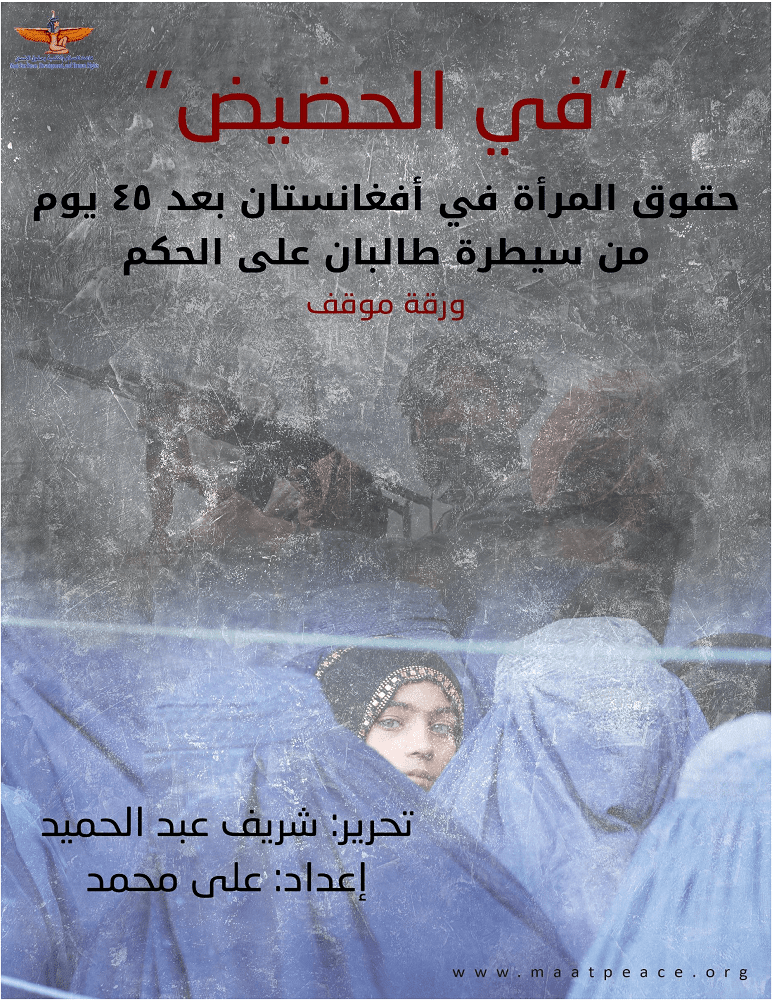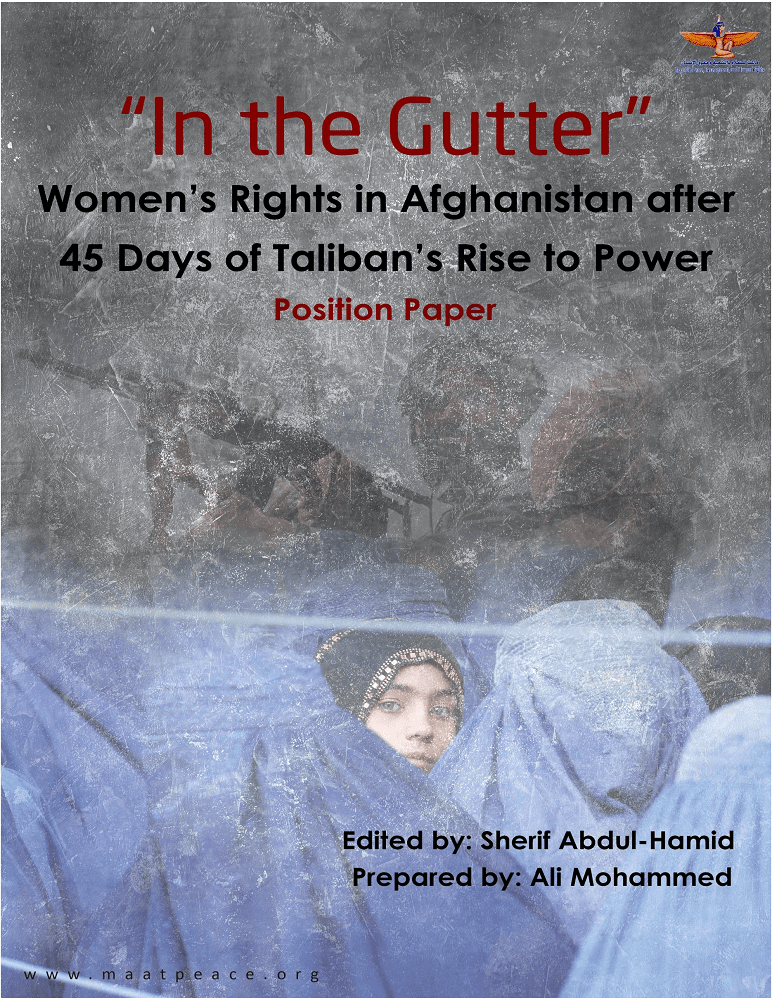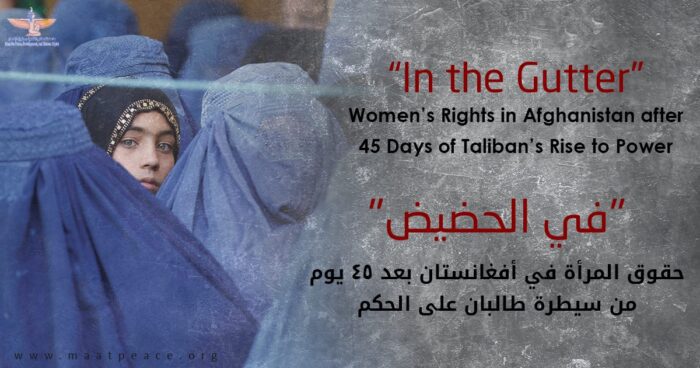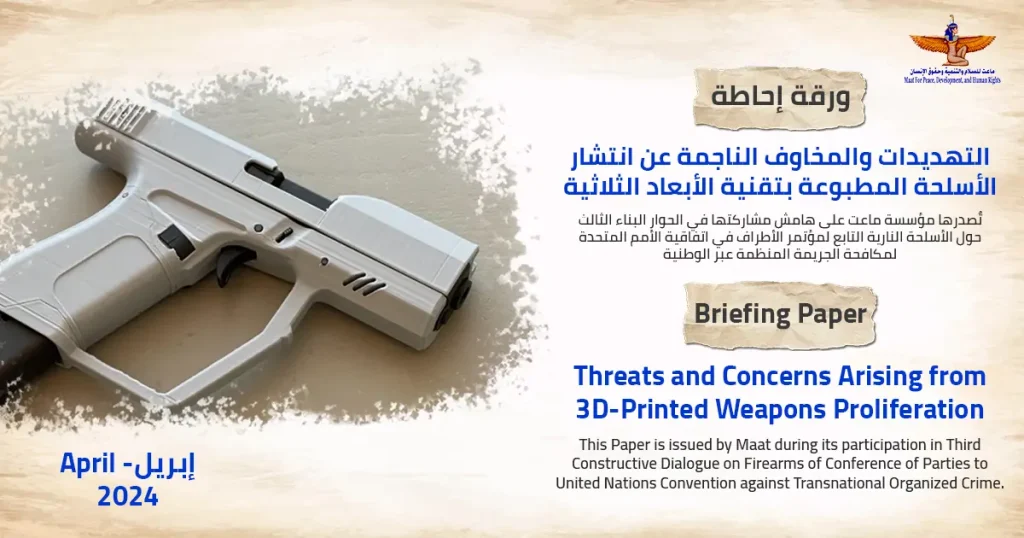Okeil: The international community should pressure Taliban to respect human rights, and develop a long-term strategy to protect women
Sherif Abdul-Hamid: Taliban did not fulfill their promises to protect women's rights, and the United Nations should establish a mechanism to monitor, document and address violations
Maat for Peace, Development and Human Rights announced that Africa has been subjected to 61 terrorist attacks throughout September, causing the death of at least 1,006 people due to terrorist operations and ethnic tensions. East Africa was the most affected regions with 608 victims, or about 60% of the total number of victims throughout month, due to the internal fighting in Ethiopia, where 541 victims fell due to ethnic tensions in Ethiopia alone. Somalia was the country most exposed to terrorist operations, as it was subjected to 17 terrorist attacks alone.
The paper showed that before Taliban took control, women in Afghanistan had struggled to obtain some of their rights, such as the enjoyment of broad participation in political and public life, the leadership of non-governmental organizations in support of women's rights, and the enrollment in military and police forces. Besides, women had worked as translators, judges, and journalists. Thanks to the efforts of female human rights defenders, Afghanistan had acceded to a range of international human rights instruments to protect women, such as the Convention on the Elimination of All Forms of Discrimination against Women ratified by the Afghan Parliament in 2003.
According to the paper, all the previous hard-won gains are in jeopardy. This was evident in the initial weeks of Taliban rule, as girls at the secondary level were prevented from returning to school, the Ministry of Women's Affairs was dissolved, and women were not represented in the government formation announced on September 7, 2021, all in light of stereotypical views that restrict the role of women to specific traditional roles such as staying at home and raising children.
Ayman Okeil, an international human rights expert and the president of Maat, said that although Taliban assured women at the beginning that they will resume their work after creating safe conditions for their return, the actual practices confirmed the otherwise. Women were dismissed from work and told that they could no longer return to work in specific jobs. For example, in Herat province, Taliban asked female journalists not to go to work, and among the 700 female journalists working in the capital, Kabul, their number has reached only 100 at the present time, with the probability that all of them will stop working as a journalist. Okeil added that women in Afghanistan face endless restrictions. Accordingly, Okeil called on the international community to pressure the Taliban movement to respect human rights in general and the rights of women and vulnerable groups in particular, in compliance with international human rights law, treaties and conventions to which Afghanistan has acceded. Okeil also called for the need to put in place a long-term joint strategy, including axes related to providing education, especially for girls, increasing the flow of funding for educational activities, and ensuring comprehensive protection for women and girls, especially those belonging to ethnic minorities in Afghanistan.
For his part, Sherif Abdul Hamid, director of the Research and Studies Unit at Maat for Peace, said that Taliban did not fulfill any of its promises regarding not violating women’s rights, especially with regard to their access to education, work, and freedom of movement. On the contrary, it imposed additional restrictions and exposed women who violated the strict instructions and successive restrictions of Taliban to violence by the militants of the organization. Abdul-Hamid added that the hard-won gains achieved in Afghanistan before Taliban took control of the government, especially with regard to girls' education, were not matched by similar gains at the level of employment, and all these gains may get lost if Taliban's policies continued unchanged.
Abdul-Hamid called for the need to create a new mechanism affiliated with the Human Rights Council or the Security Council, whether it is a fact-finding mission or an independent investigation mechanism with a mandate for years to come to monitor, document and report on all human rights violations committed by all actors in Afghanistan.
![]()
 |
 |











